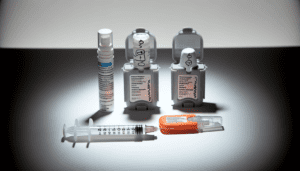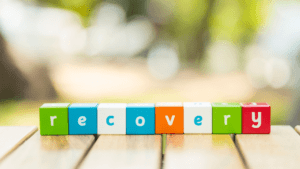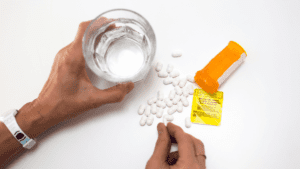Dual diagnosis, also known as co-occurring disorders, is a term used to describe the condition of having both a mental health disorder and a substance use disorder simultaneously. This complex interplay between mental health and addiction presents unique challenges in treatment and recovery. In this article, we will delve into the intricacies of dual diagnosis, its prevalence, the importance of integrated treatment, and how to seek help.
The Prevalence of Dual Diagnosis
Dual diagnosis is more common than many realize. According to the Substance Abuse and Mental Health Services Administration (SAMHSA), approximately 9.5 million adults in the United States experienced both mental illness and a substance use disorder in 2019. The relationship between these conditions is bidirectional; mental health disorders can lead to substance abuse as a form of self-medication, and prolonged substance abuse can exacerbate or trigger mental health issues.
Common Mental Health Disorders in Dual Diagnosis
Several mental health disorders frequently co-occur with substance use disorders, including:
- Depression: Individuals with depression may use drugs or alcohol to escape feelings of sadness or hopelessness.
- Anxiety Disorders: Substances may be used to alleviate symptoms of anxiety, leading to dependency.
- Bipolar Disorder: The mood swings associated with bipolar disorder can drive individuals to use substances to stabilize their mood.
- Post-Traumatic Stress Disorder (PTSD): Trauma survivors might turn to substances to cope with distressing memories and emotions.
- Schizophrenia: Substance use may be an attempt to manage the symptoms of schizophrenia, though it often worsens the condition.
The Importance of Integrated Treatment
Treating dual diagnosis requires an integrated approach that addresses both the mental health disorder and the substance use disorder simultaneously. This is crucial because treating only one condition often leaves the other untreated, which can lead to relapse and further complications. Integrated treatment typically includes:
- Therapeutic Interventions: Cognitive-behavioral therapy (CBT), dialectical behavior therapy (DBT), and other therapeutic modalities help individuals understand and manage their conditions.
- Medication Management: Medications may be prescribed to manage symptoms of mental health disorders or to assist with withdrawal and cravings.
- Support Groups: Peer support through groups like Dual Recovery Anonymous can provide a sense of community and shared experience.
- Lifestyle Changes: Incorporating healthy habits, such as regular exercise, proper nutrition, and stress management techniques, supports overall well-being and recovery.
- Comprehensive Assessment: Accurate diagnosis of both disorders is the first step in developing an effective treatment plan.
Seeking Help for Dual Diagnosis
If you or a loved one is struggling with a dual diagnosis, it’s essential to seek professional help. Treatment centers specializing in dual diagnosis offer comprehensive care that can address the complexities of co-occurring disorders. When looking for a treatment provider, consider the following:
- Accreditation and Licensing: Ensure the facility is accredited and the staff are licensed and experienced in treating dual diagnosis.
- Personalized Treatment Plans: Look for programs that tailor treatment plans to meet individual needs.
- Aftercare Support: A strong aftercare program is vital for maintaining recovery post-treatment.
Dual diagnosis is a challenging but manageable condition with the right approach to treatment. Understanding the interconnected nature of mental health and substance use disorders is the first step toward effective recovery. By seeking integrated treatment and ongoing support, individuals can navigate the path to a healthier, substance-free life. For further reading and resources, visit Addiction Help Finder contact and resources, where you’ll find a wealth of information to guide you on your recovery journey and inspire you with stories of hope of our neighbors in the Spokane community.










